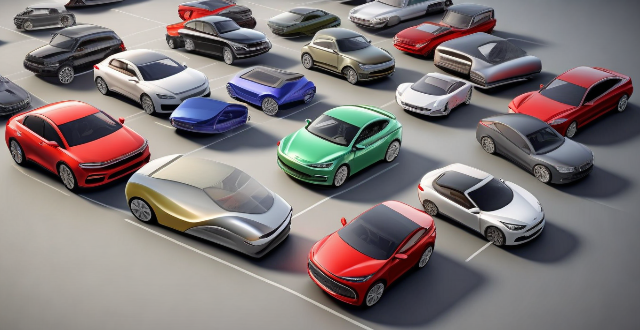Hybrid cars are generally more expensive than regular cars, but offer potential long-term savings through improved fuel efficiency and similar maintenance costs. They also tend to hold their value better and may qualify for tax benefits or incentives.

Are Hybrid Cars More Expensive Than Regular Cars?
Introduction
Hybrid cars have become increasingly popular in recent years due to their potential for fuel savings and lower emissions. However, one common question among car buyers is whether hybrid cars are more expensive than regular cars. In this article, we will explore the cost differences between hybrid and regular cars and discuss some factors that contribute to these differences.
Initial Cost
Are Hybrid Cars More Expensive Upfront?
Yes, hybrid cars generally have a higher initial cost compared to regular cars. This is because hybrid vehicles require additional components such as an electric motor, battery pack, and regenerative braking system, which add to the overall cost of the vehicle. According to a study by Consumer Reports, the average price of a new hybrid car is around $2,000 to $3,000 higher than a comparable conventional gasoline-powered car.
Fuel Efficiency
Do Hybrid Cars Save Money on Fuel?
Yes, hybrid cars can save money on fuel over time. Since hybrid vehicles use both an internal combustion engine and an electric motor, they typically consume less fuel than regular cars. The exact amount of fuel savings varies depending on the specific model and driving conditions, but most hybrids achieve better fuel efficiency than their non-hybrid counterparts. For example, a Toyota Prius hybrid may get around 50 miles per gallon (mpg), while a similar-sized conventional car might only get 30 mpg. Over several years of ownership, these fuel savings can offset the higher initial cost of a hybrid car.
Maintenance Costs
Are Hybrid Cars More Expensive to Maintain?
The maintenance costs of hybrid cars are generally similar to those of regular cars. However, there are some unique aspects of hybrid vehicles that may affect maintenance expenses. For instance, hybrid batteries typically have a longer lifespan than regular car batteries, but they are also more expensive to replace when necessary. Additionally, some specialized training or equipment may be required for certain repairs or maintenance tasks on hybrid vehicles. Overall, though, the maintenance costs of hybrid cars are not significantly different from those of regular cars.
Resale Value
Do Hybrid Cars Hold Their Value Better?
Yes, hybrid cars tend to hold their value better than regular cars. This is partly because hybrid vehicles are still in high demand among environmentally conscious consumers and those looking for fuel savings. As a result, used hybrid cars often sell for higher prices than comparable used regular cars. However, it's important to note that resale values vary depending on the specific make and model of the vehicle, as well as market conditions at the time of sale.
Tax Benefits and Incentives
Are There Any Tax Benefits or Incentives for Buying a Hybrid Car?
Yes, many governments offer tax benefits or incentives for purchasing hybrid vehicles. These incentives can include tax credits, rebates, or other financial assistance aimed at encouraging consumers to buy more fuel-efficient vehicles. The exact nature and availability of these incentives vary by country and region, so it's essential to research local options before making a purchase decision.
Conclusion
While hybrid cars do have a higher initial cost compared to regular cars, they offer several potential long-term savings opportunities through improved fuel efficiency, maintenance costs that are generally similar to regular cars, and potentially higher resale values. Additionally, tax benefits and incentives may further offset the upfront cost difference for some buyers. Ultimately, whether a hybrid car is more expensive than a regular car depends on various factors such as driving habits, fuel prices, and individual preferences regarding environmental impact and technology adoption.